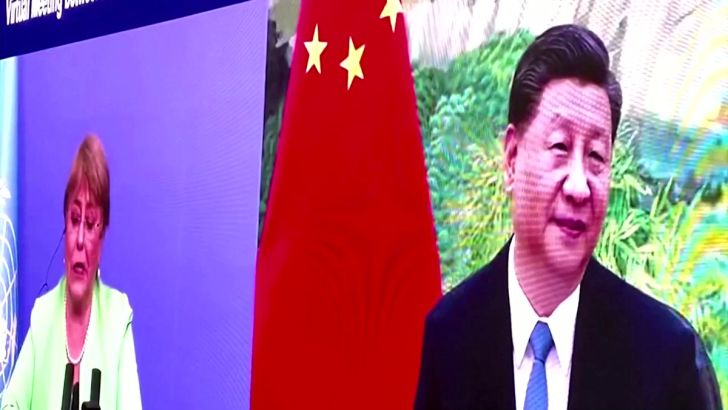What you need to know about China this week includes President Xi Jinping leaving his country for strategic reasons, the latest layer of civil rights abuse in Xinjiang, new books about Beijing’s surveillance state and monitoring of movies, and a true-life tale of five speech therapists being convicted of sedition over a story involving wolves and sheep.
President Xi’s exit strategy

The sidelines of a summit in Uzbekistan is where Vladimir Putin will meet Xi Jinping in the latter’s first trip outside of his home country since the start of the COVID-19 pandemic. Naturally, it’s seen as part of the strategy by China and Russia to ramp up their rivalry with the West, foreshadowing what to worry about once Xi’s third five-year term begins on October 16.
A clampdown in Xinjiang


A week after the United Nations highlighted it as the scene of Beijing’s crimes against humanity, Xinjiang is now making news as the latest part of China experiencing shortages due to lockdowns under the zero-COVID policy. Residents have also faced censorship of their own social media posts complaining about shortages of food and medicine.
Watching watchers watch
Surveillance State: Inside China’s Quest to Launch a New Era of Social Control is a new book by two reporters from the Wall Street Journal, who have detailed the extent to which Beijing is using technology to monitor every move. But compared to lower-tech authoritarian countries, China’s tactics are destined to also influence the ways of the West.
Screening out the movies


A review of Red Carpet: Hollywood, China, and the Global Battle for Cultural Supremacy says it can serve as a cautionary tale for all American companies seduced into doing business with Beijing. The most recent example of strong-arm tactics was a statement telling moviemakers they’ll be banned if their storylines disrespect Chinese culture.
The wolves enact revenge


The depiction of sheep trying to hold back wolves from their village led five Hong Kong speech therapists to be convicted of sedition based on books for children. Police accused the contents of “sugarcoating protesters’ unlawful acts” and “glorifying fugitives fleeing,” although the therapists argued the stories were simply promoting universal values.





